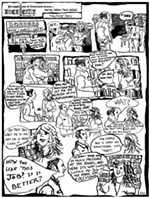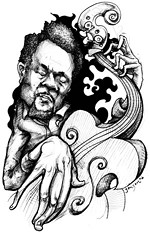Rock & Roll Books
Gift guide
By Harvey Pekar, Fri., Dec. 3, 2004

Weather Bird: Jazz at the Dawn of its Second Century
by Gary GiddinsOxford University Press, 632 pp., $35
There are reasons for Gary Giddins, long the chief jazz critic for the Village Voice, being one of the most highly respected and well-known jazz critics in the country. He's an articulate, sometimes witty writer, whose prose style may please readers more than what he has to say about music. He's got a better knowledge of the technical side of music than most critics. He's interested in and writes about all eras of jazz history and seems to enjoy the music of every jazz movement. Weather Bird collects columns and essays Giddins has written for the Voice and other publications since 1990. Frequently they're reviews of recordings, concerts, and club appearances that he writes about reasonably; at least he attempts to back up his views. There are a couple of areas where I have differences with him, however. One regards his attitude toward retro jazzmen, such as Scott Hamilton, Warren Vaché, and "The Young Lions," e.g., Wynton Marsalis (although he did blast Marsalis' Blood on the Fields), James Carter, and Mark Whitfield. Giddins doesn't seem to draw a distinction between the reactionaries and the originators of the styles they copy. There have been reactionary movements in many art forms, but when the copiers get more attention than the innovators I think it's time to make note of it. I'm also concerned about the overconfidence Giddins displays in his essay "How Come Jazz Isn't Dead?" He writes, "The notion that jazz is dead or could die in the foreseeable future is predicated on one of two ideas: It is a narrow musical style with fixed parameters or a passing fashion that has had its day. A century of developments puts paid to both." Actually, many jazz enthusiasts have been rightly alarmed at plummeting jazz sales (currently 2% of the market), lack of radio time, club closings, and a shrinking job market. Avant garde classical and jazz styles are resembling each other more and more, and someday may unite, saving both. In any event, however, this is no time for complacence.








